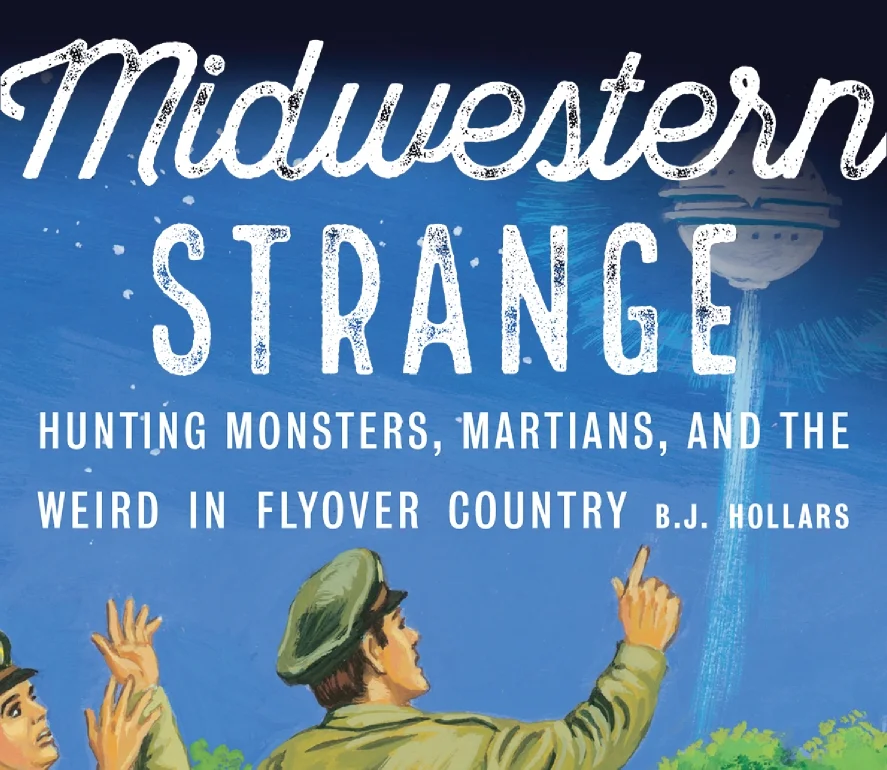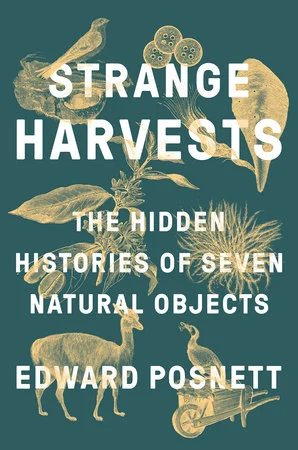Although foot traffic at sanctuaries, refuges and other outdoor recreation areas has suffered, if not vanished altogether, in the wake of covid-19, many of those featuring live webcams are welcoming a new audience online.
Ethanol market is ‘disturbing as hell’ to American farmers. And now there’s Covid-19.
Forty percent of the U.S. corn crop is refined into ethanol, but over the last two weeks, Covid-19 has joined a host of other disrupting factors to create what Geoff Cooper, president of the Renewable Fuels Association, calls “not just a perfect storm for ethanol, but a perfect tsunami.”
Floods, Carp, And Crap: The Environmental Impacts Of The Chicago River Reversal
The reversal of the Chicago River in 1900 flooded farmland downstream, opened the gates for new invasive species, and polluted areas as far south as the Gulf of Mexico.
Fever dreams
When John Neihardt joined MU’s faculty 70 years ago, this charismatic poet not only beguiled legions of students with his epic tales of the frontier but also helped forge the voices of talented young authors, including William Least Heat-Moon, who went on to write the bestseller Blue Highways.
In 'Midwestern Strange,' A Tour Of The Utterly Bizarre And All-Too-Human
Equal parts essay, journalism and memoir, Midwestern Strange is a breezy read, often very funny, and occasionally — at its best — illuminating.
'Strange Harvests' Turns Nature's Fairy Tales Inside Out
Inspired by his research into the Icelandic eiderdown harvest, in which farmers and eider ducks peaceably co-exist, Posnett travels the globe in search of similar harvests "predicated on cooperation rather than domination."
'Escalante's Dream' Retraces The Steps Of The 'Spanish Lewis And Clark'
Diagnosed with stage 4 throat cancer in July 2015, David Roberts decided finally to pursue an idea he'd been pondering for more than 20 years: "retracing the 1,700-mile loop that Dominguez and Escalante had inscribed across a Southwest that was a blank on the Spanish map."
Educational Fight or Flight
How do you keep rural schools open when enrollment is declining and small towns are emptying out?
'Aloha Rodeo' Offers Alternative To The Cowboy Cliché
Now comes Aloha Rodeo: Three Hawaiian Cowboys, the World's Greatest Rodeo, and a Hidden History of the American West, to further buck — at least to pluralize — our clichéd notions of the American cowboy.
Enviva, a giant in wood pellets, shifts tree-sourcing policy
Enviva, the largest industrial wood-pellet manufacturer in the world, launched what it calls an “enhanced and expanded global sourcing policy” last week in partnership with Earthworm Foundation.
The Obsessive Addiction That Makes Some Runners Stockpile Hundreds of Shoes
How two runners amassed 567 pairs of shoes—many of which they've never even worn.
American Forests Fuel Europe’s Appetite for “Green” Energy
Given the torrent of dire climate forecasts, the notion of biomass as a “carbon-neutral” energy source has come increasingly under fire from both the environmental and scientific communities.
Overlooked No More: Elizabeth Peratrovich, Rights Advocate for Alaska Natives
Peratrovich and her husband rallied Natives to ensure the passage of the 1945 Anti-Discrimination Act, the first anti-discrimination law in the United States.
What happens when you put cowboys in a room to talk politics?
At the National Cowboy Poetry Gathering in Nevada, friends and performers with wide-ranging views met to discuss climate change, immigration and other concerns ‘without demonizing each other’
The Commune & The Castle: An Unraveling
Bullets flew in Vietnam. Campus sparked with protest. And a group of students, mired in existential dread, began to question the academic system. Searching for answers, they formed a commune adjacent downtown Lincoln, in a large, old home they called The Castle. In the end, the results were ambiguous, but they would never forget their time at Nebraska.
Boom Town Explodes the Notion of ‘Flyover’ Territory
Sam Anderson’s ambitious new book about Oklahoma City reanimates a place that has too often been portrayed as simplistic.
How ranchers in the West survive on their winnings from rodeo riding
If “The Last Cowboys” doesn’t provide all the answers, it does give us one hell of a ride.
In Yellowstone, Heavy Lies the Stetson (on Kevin Costner’s Head)
Land disputes, water rights, Native sovereignty: Paramount’s new series could hardly be more relevant to today’s West.
For Cowboy Poets, One Topic is Taboo
They love the land. But few at the National Cowboy Poetry Gathering want to talk about how climate change is ravaging the West.
Elizabeth Ebert, ‘Grand Dame of Cowboy Poetry,’ Dies at 93
Ms. Ebert, who rose to queenly prominence within the chivalrous ranks of cowboy poetry, died on March 20 at a hospital in Bismarck, N.D., after breaking a hip.



















